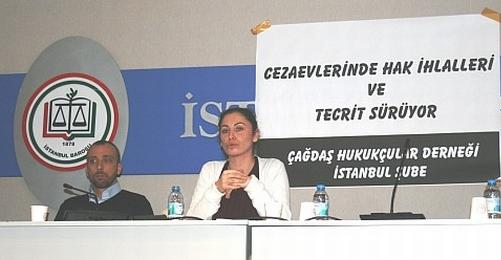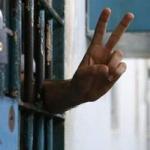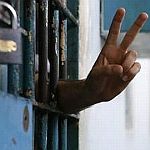According to the January 2012 Report of the Prison Monitoring Commission released by the Istanbul Branch of the Contemporary Lawyers Association (ÇHD), health issues are on top of the list of problems of detainees and convicts.
Moreover, prison administrations prevent letters of detainees and convicts about rights violations to be sent to journalists.
The report was introduced to the public on Wednesday (25 January) by lawyer Güçlü Sevimli, Steering Board Member of the ÇHD Istanbul Branch, and lawyer Oya Aslan from the Prison Monitoring Commission. The report touches upon rights violations in prison.
The report is based on almost one hundred interviews with detainees and prisoners in prisons in the Marmara region (north-western Turkey), i.e. the Tekirdağ No.1 and No.2 F Type Prisons, the Kocaeli No.1 and No.2 F Type Prisons, the Edirne F Type Prison, the Bakırköy (Istanbul) Closed Prison for Women and the Maltepe (Istanbul) Prison.
30 lawyers carried out the talks between 3 to 15 January. "Prisoners might become subject to a disciplinary penalty even when they catch each other's eye" Lawyer Aslan indicated in the beginning of the presentation.
According to Aslan, both judicial and political prisoners face great difficulties in going to hospital and medical examinations. Many detainees and convicts with health problems have not received medical treatment.
"Male gendarmerie officers do not leave the room during gynaecological examinations. Handcuffs of the prisoners are not even taken off for examinations. These applications are unacceptable" Aslan emphasized.
News about F type prisons banned in F type prsions
Aslan pointed to data of the Ministry revealing that 1,700 people died in prison between 2000 and 2010. She claimed that this figure has exceeded two thousand by now and that in their opinion these deaths did not have natural reasons.
"Newspapers with news about prisons are restricted from being read in prison. It is not allowed to write letters to journalists".
Inmate R.Ç. at the Edirne F Type Prison describes these restrictions:
"My friends tell me that they sent letters to me but I did not receive any. Also the letters I wrote did not reach their recipients. The letters about rights violations sent to journalists were confiscated".
Inmate F.Ö.A. from the Tekirdağ No.1 F Type Prison explained, "News in daily papers or magazines which they do not like are being blackened. News about F type prisons in particular are never given to us".
Priosner Ç.Ş. recalled, "I wanted to read the BirGün newspaper. It was sent to me but a news item about rights violations was partly blackened because of 'organizational communication'".
The 29 May 2011 issue of the left-wing BirGün daily was not allowed into prison on the grounds of the article entitled "Alas! They wrote about our cruelty" dealing with the fact that the paper was not given to convicts.
A.H.B. incarcerated at the Tekidağ No.2 Prison said, "When I talked to mother on the phone in Kurdish since we are Kurds they cut the phone line".
The newspapers banned from prison most frequently are Azadiya Welat, Özgür Gündem, Evrensel, Cumhuriyet and BirGün.
The ÇHD recommended the establishment of an independent prison monitoring committee in order to determine and prevent rights violations in prison. (AS/VK)













